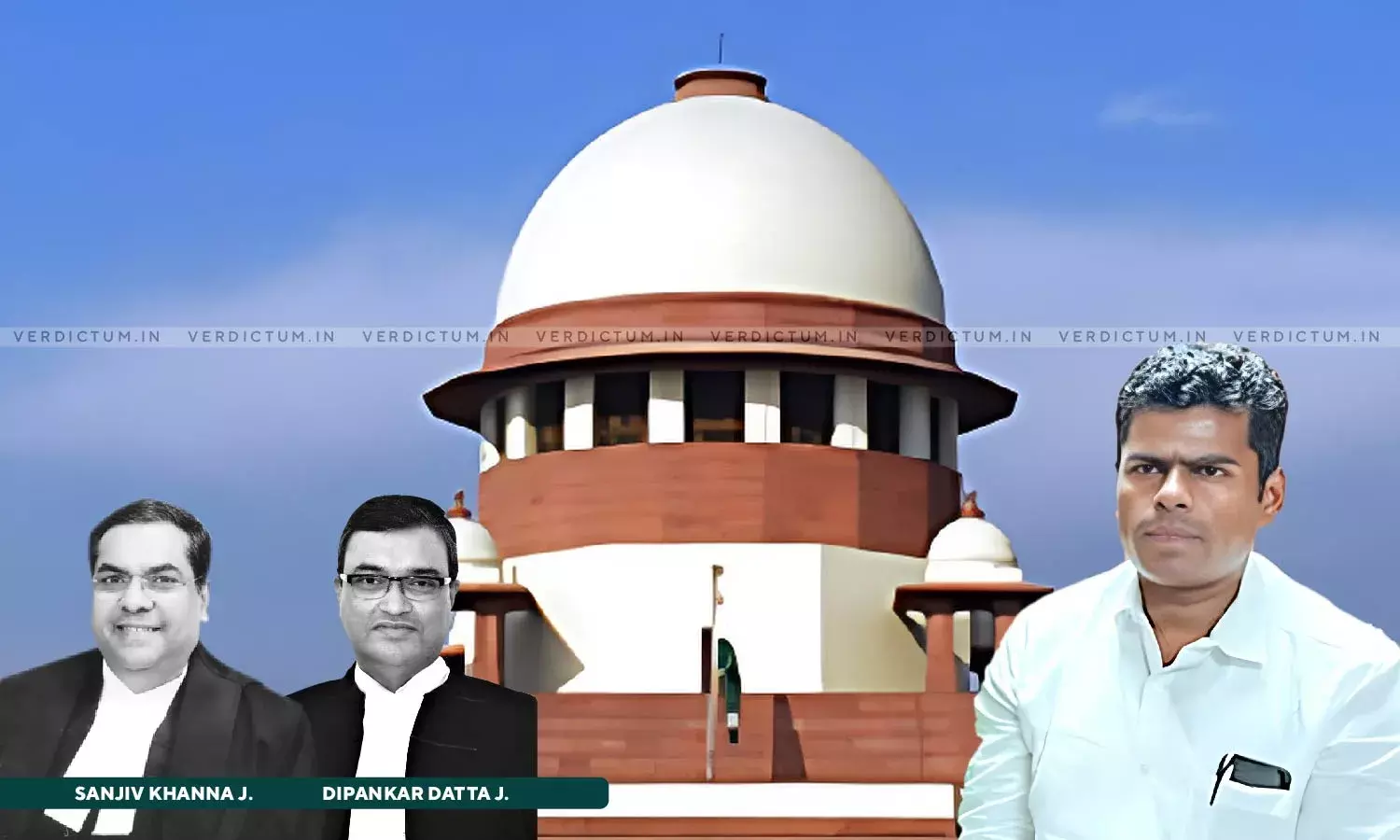It Will Not Be Hate Speech: Apex Court While Staying Criminal Proceedings Against Tamil Nadu BJP Chief Annamalai For His Remarks On 'Christian Missionary NGO'
The Supreme Court today while issuing notice in Tamil Nadu BJP Leader Annamalai's plea has stayed the proceedings before the trial court against him for alleged remarks made in a YouTube interview against a Christian Missionary NGO, which had approached the Supreme Court to seek a ban on firecrackers.
At the outset, Justice Sanjiv Khanna while taking note of the translation of the remark, said “It is not hate speech…it will not be…”.
Pertinently, the Madras High Court while refusing to quash the criminal proceedings against K Annamalai, had emphasized that the psychological impact of a statement made by a popular leader must not be merely confined by testing it only to immediate physical harm, and it is the duty of the Court to see if it has caused silent harm in the psyche of the targeted group.
Accordingly, a bench of Justice Sanjiv Khanna and Justice Dipankar Datta observed, “Issue Notice returnable in the week commencing 29th April 2024…In the meanwhile, there will be a stay on further proceedings before the Trial Court. We pass the interim order after our attention was drawn to translation at page 60…”.
Senior Advocate Siddharth Luthra and Advocate J Sai Deepak appeared for the Annamalai.
In a YouTube interview, Annamalai had stated that it was a Christian Missionary NGO which had approached the Apex Court to seek a ban on firecrackers. After video clippings of the interview were shared on social media, the respondent, Piyush, filed a complaint with the DGP, Home Secretary, and the Commissioner of Police, Salem. He expressed concerns that the post could incite hatred between two communities. However, he was informed that the interview did not constitute a breach of public peace, and no prima facie case was established.
Subsequently, Piyush invoked Section 156(3) and 200 of the CrPC before the Salem Judicial Magistrate. The Magistrate found a prima facie case under Section 153A and Section 505(1)(b) of the IPC and issued summons to Annamalai. Annamalai challenged the summons and the entire proceedings, contending that his speeches were expressions of anguish. He pointed out that the interview was conducted in 2022, and the complaint was filed about 400 days later, with no untoward incidents occurring during this period based on the speech.
The High Court had observed that to make out an offence under Section 153A of the IPC, the Court has to take note of Clauses (a) and (b) to Sub-Section (1). There must be words, which are either spoken or written and they must promote or attempt to promote on the ground of religion, disharmony or feelings of enmity or hatred or ill-will between different religious groups or communities and that are likely to disturb the public tranquillity. With that background, it was held that "The contents of the submissions made by the learned counsel for the petitioner prima facie satisfy every one of the ingredients mentioned".
It was further held that "It is clear from the above discussion that there exists a prima facie intent to create hatred towards a particular religion. These statements were made by a person of stature, whose words have a lot of impact on the masses and as a result, they, prima facie, have a psychological impact on the targeted group."
Cause Title: K.Annamalai v. V.Piyush




